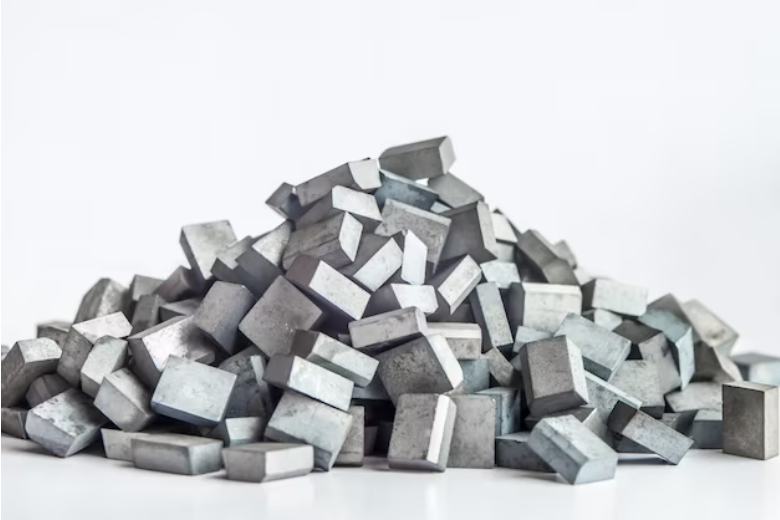A Brief Look Into the Various Alloys of Titanium

Titanium alloys are among the pinnacle of metal engineering due to their remarkable strength, resistance to corrosion, and lightweight nature. They are also at the very center of the race of innovation and advancements, with each type of titanium alloy providing its own unique set of advantages. We at Kalapurna have put together this blog where we examine the distinctive qualities of a few notable titanium alloys that have revolutionized the metal market and pushed the envelope of technological advancement.
Exploring a Few Notable Alloys of Titanium
Commercially Pure Titanium (CP Ti)
At 99 percent or above, commercially pure titanium (CP Ti) is considered the purest of all titanium alloys and is considered the essential building block among them. Because of its exceptional resistance to corrosion, CP Ti is widely used in industries where durability and lack of creativity are critical factors. Thanks to its remarkable purity, CP Ti is the perfect material for demanding applications. This is especially true for equipment used in chemical processing, where resistance to corrosive environments proves to be an essential characteristic to possess.
This material’s adaptability also extends to maritime parts that must withstand the constant difficulties posed by exposure to seawater. But CP Ti’s importance is greatest when it comes to medical implants, where its strength and biocompatibility make it a desirable material for orthopedic devices, dental implants, as well as surgical equipment.
Titanium Alloy Ti-6AI-4V
Known to be among the most common of all the titanium alloys, Ti-6Al-4V is a widely used, adaptable alloy that has revolutionized a number of sectors. This alloy, which is 6 percent aluminium and 4 percent vanadium, is a mainstay in aerospace engineering because of its strength and it also boasts high resistance to corrosive elements. Due in part to its high fatigue endurance as well as bending strength, Ti-6Al-4V is widely used in the manufacturing of engine parts, aircraft frames, and a range of many other vital aerospace components.
Apart from aerospace applications, Ti-6Al-4V’s versatility is most evident in biomedical applications where, much like CP Ti, its biocompatibility and durability are used in orthopaedic implants. It has an impact on industrial components, sporting items, and maritime ecosystems. Ti-6AI-4V is a prime example of the revolutionary potential of titanium alloys, propelling progress in a wide range of demanding and varied applications.
Beta Alloys
As one of the more intriguing developments in the field of titanium, titanium beta alloys exhibit a careful balance between formability and strength. Among the notable instance are Ti-3Al-8V-6Cr-4Zr-4Mo. These alloys have a special blend of high strength and malleability because they retain a dual-phase structure that includes both phases of titanium (alpha and beta).
These alloys are useful in aircraft applications because of their inherent balance, which enables complex designs to be made of components that must withstand harsh environments. The adaptability of beta alloys also benefits the oil and gas industries as well as sporting products. Titanium beta alloys have been significant in advancing materials engineering due to their ability to tolerate high-stress conditions and give malleability for complicated geometrical forms. This versatility allows for a wide range of applications in demanding and diverse settings.
Ti-6Al-4V Extra Low Interstitial
Ti-6Al-4V Extra Low Interstitial, or ELI for short, is a unique titanium alloy that is ideal for use in biomedical applications. Compared to its other equivalent, this alloy has lower quantities of iron and oxygen, which is what improves its biocompatibility and makes it a better option for vital medical implants. In the realm of medical technology, the alloy’s mechanical strength and resistance to corrosion guarantee dependable, long-lasting solutions.
This alloy finds application in dental implants and orthopedic devices where strength and non-reactivity are critical characteristics. Thanks to its remarkable biomechanical qualities and seamless integration with the human body, the alloy is positioned to play a significant role in developing healthcare and enhancing the quality of life for a massive number of individuals who need it.
Every alloy of titanium has a distinct function in influencing industries and expanding the realm of possibility, from the broad offerings of commercial pure titanium, to other materials such as Titanium grade 5. These alloys are no doubt set to keep changing the field of metal engineering as technology continues to develop, leading us into a future where titanium’s remarkable qualities will continue to influence and transform a number of industries. Whether you are looking for titanium alloys or reliable solutions in aluminium and other materials, there is no better name to look to than Kalapurna.